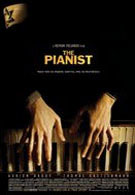It is difficult to work up the energy to watch another Holocaust movie. With 2+ hours of misery and despair staring you in the face, what really do you have to look forward to? Like most films about the Holocaust, The Pianist is an educational experience, filled with horror and loss on the usual scale.
The twist this time is that this particular look at the Holocaust follows a Jewish man who escaped being sent to the camps, and spends the bulk of World War II hiding in Warsaw, struggling to survive. A world-class pianist by trade, everything is taken from him, even his music. With the world and his people dying around them, he keeps fighting for life, dealing with guilt over those who weren’t quite so lucky as he.
This is not a thriller or an action movie. There are no grand escapes or heroic triumphs. Rather, it is based on the autobiography of Wladyslaw Szpilman, who was playing Chopin on a Polish radio station when the bombs first began to fall. Unable or unwilling to stop playing, he keeps making music, even as everyone else runs, and the building begins to crumble around him. “I’m not going anywhere,” he says, a stoically resolute attitude that carries him quietly throughout the entire film. Following a gradual and historical progression, we get a calculated look at the slow way in which the Jews were led to slaughter by the madness of the Nazi’s. Throughout it all, Szpillman and his family convince themselves that it cannot possibly get worse. It does.
First the city’s Polish Jews are forced to abandon their possession, and all forcibly moved to a ghetto near the center of town. 400,000 people crammed into a few small city blocks. A Jewish police is formed to enforce Nazi law, yet Szpilman rejects a place in it. Instead he remains resolute, continuing to do the only thing he really understands, make music. Later a good friend in the police saves his life when his family and everyone else is marched off to board trains taking them to what only then do they realize is probably their death.
The Pianist is the long and amazing story of how one artist survived alone, in the heart of the Holocaust. It is not beautiful, it is not passionate, but rather a cold and unflinching look at a man simply staying alive. Played by Adrien Brody, Szpilman is gaunt and resolved no matter what he faces. With director Roman Polanski himself a Holocaust survivor, he really keys in on the faith that keeps Szpilman going. That constant self-reassurance that somehow, no matter how much worse things keep getting, that it will get better. Even in the heart of destruction, with the city crumbling around him, you can see something in Brody’s eyes that belies an unflinching belief that somehow, it will get better.
But to my mind, The Pianist is simply too detached and low key to really get audiences involved in what’s going on. More like reading a factual history on paper than watching it, there’s little true emotion attached even to the most brutal humiliations. Understandably, every survivor story cannot be filled with courage and daring. Every survivor’s tale is not necessarily an emotional revelation of survival and faith. Yet I’m not sure what good it does to present this particular story in such a dispassionate manner. Szpilman’s quiet acceptance of his fate pervades the film until our reaction can be nothing but detached disinterest. That’s a shame, since The Pianist really does give us a look at the Holocaust from an angle that we’ve never actually seen before. A subject like this should inspire reaction in its audience; The Pianist does not.
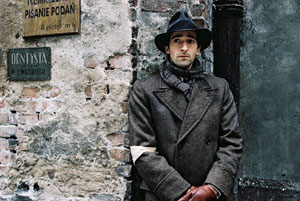

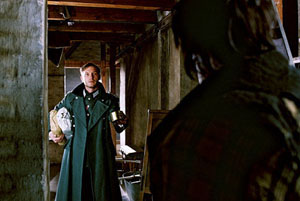
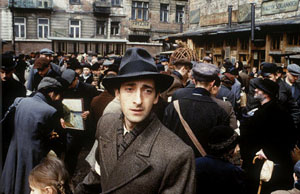
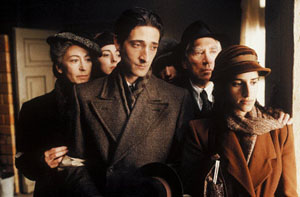
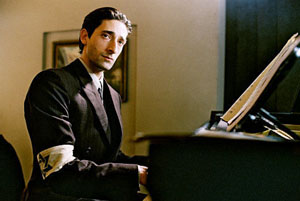
Your Daily Blend of Entertainment News
